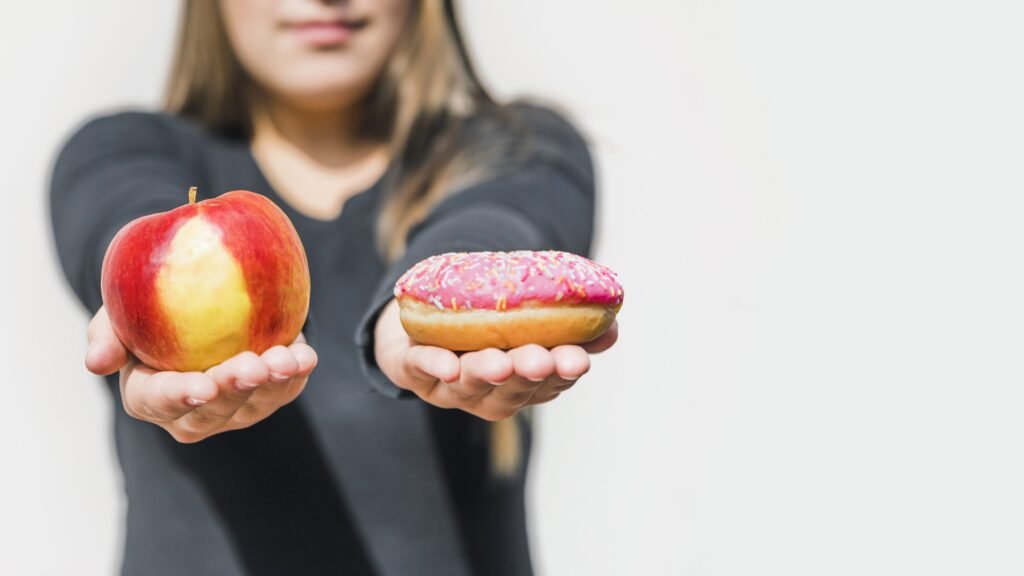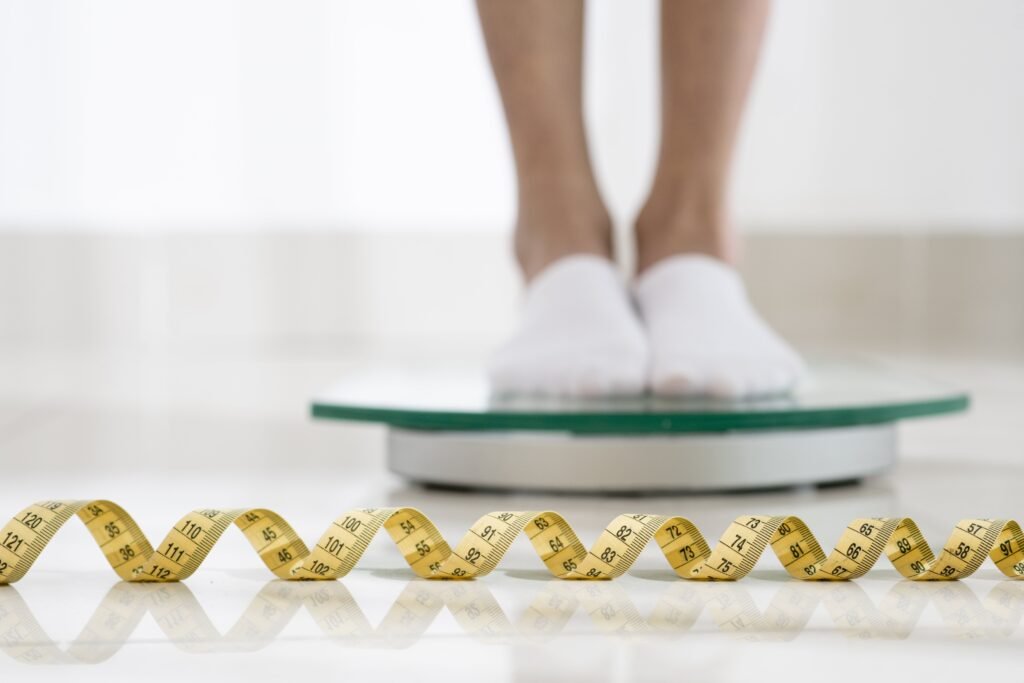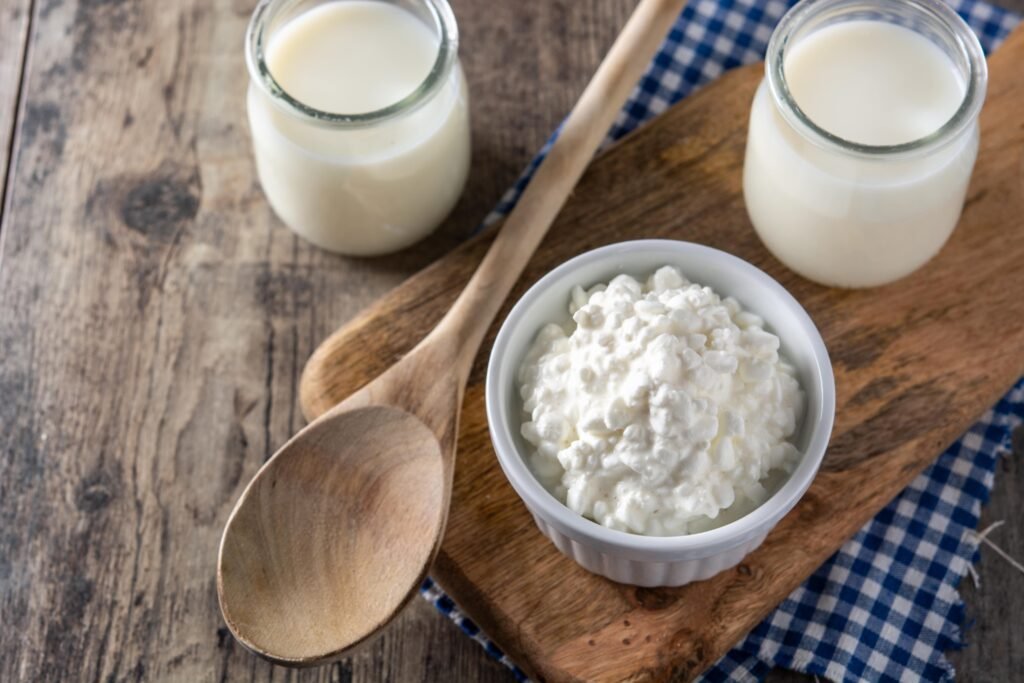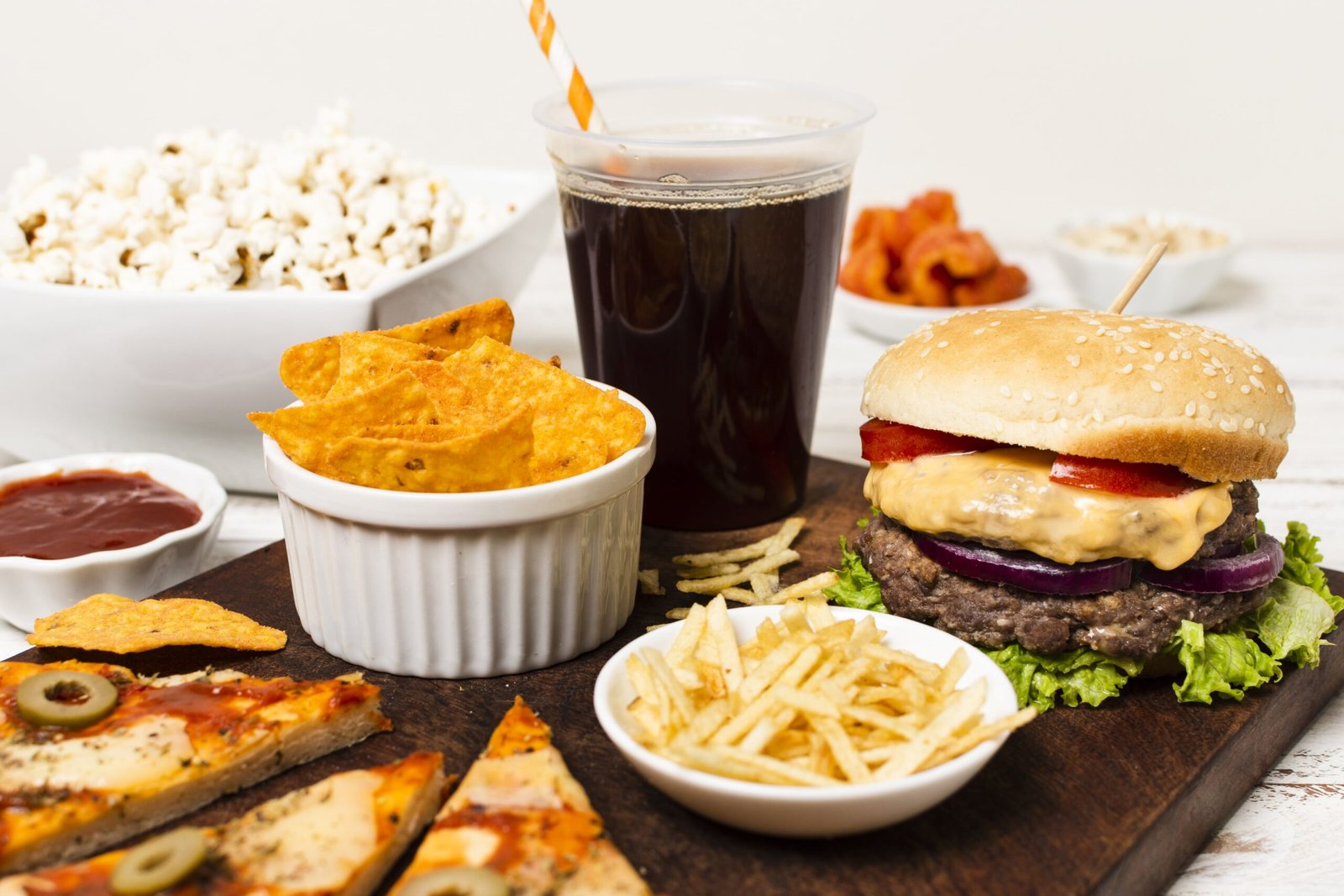For years, I thought I was eating “healthy enough.” A granola bar for breakfast, a low-fat frozen meal for lunch, maybe a protein shake after the gym, and some chips or cookies at night to “treat myself.” I wasn’t living on fast food, so I assumed my diet was fine. But one day, standing in front of the mirror feeling bloated and exhausted for the hundredth time, I realized something wasn’t right.
I was eating ultra-processed foods all day long without even noticing. They weren’t just in the obvious places like candy or soda—they were hidden in my “healthy” yogurt cups, salad dressings, breads, and even my protein bars. My gut was paying the price.
When I finally cut ultra-processed foods from my diet, I didn’t just lose a little weight—I transformed my digestion, energy, and even my mood. My gut felt alive again. And what I later learned from science is that those changes weren’t just in my head: my gut microbiome was healing.
So, if you’ve ever wondered what really happens to your gut when you remove ultra-processed foods, let me take you on both my personal journey and the fascinating science behind it.
Table of Contents
What Exactly Are Ultra-Processed Foods?
Before we talk about what happens when you quit them, let’s clear up what they actually are.
According to the NOVA food classification system, ultra-processed foods (often abbreviated as UPFs) are products made mostly—or entirely—out of industrial ingredients. Think: refined starches, sugars, oils, artificial flavorings, preservatives, and emulsifiers. They’ve often been through multiple processing steps and bear little resemblance to whole foods.
Examples include:
- Packaged cookies, chips, and candies
- Instant noodles and frozen pizzas
- Sweetened breakfast cereals
- Protein bars and “diet” shakes
- Soft drinks and energy drinks
- Pre-packaged sauces, dressings, and flavored yogurts
In short, UPFs are convenient, tasty, and engineered to keep you reaching for more. But here’s the hidden cost: research shows that eating too many of them can disrupt your gut health, increase inflammation, and even raise your risk for conditions like obesity, type 2 diabetes, and irritable bowel disease.
When I first learned this, I felt duped. The foods I thought were giving me energy were actually the same ones draining it.
Why I Decided to Cut Ultra-Processed Foods

For me, the breaking point came after months of feeling sluggish, bloated, and foggy. No matter how much I slept, I woke up tired. My skin wasn’t glowing like it used to, and I had embarrassing digestive issues I never talked about out loud.
At first, I blamed stress. Then I blamed my metabolism. But after stumbling across an article about how gut health and ultra-processed foods are connected, I started to see my diet in a new light.
I kept a food diary for a week and was shocked. About 70% of what I was eating came from packaged, processed products. Even the ones with “natural” or “protein-packed” labels were full of ingredients like maltodextrin, soy lecithin, artificial sweeteners, and preservatives.
I realized my gut microbiome—the trillions of bacteria that keep digestion, immunity, and even mood in balance—wasn’t being nourished. Instead of feeding my gut with fiber, polyphenols, and whole-food nutrients, I was giving it chemical cocktails that offered nothing but empty calories.
So I made the decision: I was going to cut ultra-processed foods. Not perfectly, not obsessively, but intentionally. And what happened over the following weeks completely changed how I see food.
The Science of Your Gut: Why Processed Foods Hurt and Real Foods Heal
Here’s the science part (don’t worry, I’ll keep it simple and human).
1. Your Gut Microbiome Gets Out of Balance
Your gut is home to trillions of microbes—bacteria, fungi, and even viruses—that help digest food, make vitamins, regulate your immune system, and even talk to your brain through the gut-brain axis.
Ultra-processed foods tend to be low in the fibers and plant compounds that these microbes thrive on. Instead, they’re high in additives, emulsifiers, and refined carbs that feed harmful bacteria. Studies show that diets high in UPFs reduce microbial diversity, meaning fewer species of “good” bacteria survive. And a less diverse microbiome is linked with everything from digestive issues to anxiety.
When you cut UPFs, you start giving your gut the chance to repopulate with healthier bacteria. Beneficial microbes like Faecalibacterium prausnitzii and Akkermansia muciniphila thrive on whole foods, and when they flourish, they reduce inflammation and protect your gut lining.
2. Your Gut Barrier Strengthens
Ever heard of “leaky gut”? It’s when the intestinal lining becomes more permeable than it should be, allowing toxins and inflammatory compounds to slip into the bloodstream.
Some food additives in ultra-processed products—like polysorbate 80 and carboxymethylcellulose—have been shown to erode the gut lining and encourage this leakiness. The result: chronic inflammation, which can manifest as bloating, fatigue, joint pain, or worse.
When you stop eating UPFs, your gut lining has a chance to heal. Fibers from fruits, vegetables, and whole grains produce short-chain fatty acids (like butyrate) that literally “fuel” the cells of your intestinal wall, keeping it strong and less permeable.
3. Inflammation Drops
Ultra-processed foods often contain refined sugars, unhealthy fats, and artificial additives that increase inflammation in the gut. Over time, this chronic low-grade inflammation spreads through the whole body, raising your risk for heart disease, type 2 diabetes, and even some cancers.
Cutting UPFs allows inflammation markers in the body to decrease. Personally, I noticed less bloating and fewer stomach cramps within just a couple of weeks. Science backs this up: studies show that people who swap processed meals for whole-food alternatives see measurable drops in inflammation-related blood markers.
4. Your Digestion Improves

Let’s be real: digestion is one of the first places you notice a difference when you change your diet. Within two weeks of cutting ultra-processed foods, I noticed:
- More regular bowel movements
- Less embarrassing gas and bloating
- No more mid-day crashes after lunch
- A general “lightness” in my stomach
That’s not magic—it’s biology. Whole foods contain natural fibers that bulk up stools, feed good bacteria, and regulate motility (the movement of food through your gut). Without the chemical additives slowing or irritating the system, digestion just… works better.
5. Cravings Start to Shift
This one blew my mind. I always thought my sweet tooth was just “who I was.” But it turns out that the gut microbiome influences cravings. When your gut is dominated by sugar-loving bacteria, you crave more sugar. When it’s nourished by fiber and polyphenols, your cravings naturally shift toward those foods.
Two weeks after cutting UPFs, I noticed fruit tasted sweeter, and I no longer felt the need to snack at night. That wasn’t willpower—it was my microbiome healing.
What the Research Shows: Science Behind the Gut-Processed Food Connection
While my personal experience was powerful, I wanted to make sure it wasn’t just “in my head.” So I dug into the research. What I found was overwhelming: science strongly supports the idea that ultra-processed foods harm the gut, while removing them allows healing.
Gut Microbiome Diversity Increases
Studies consistently show that diets high in ultra-processed foods reduce the diversity of the gut microbiome. A diverse microbiome is essential because different species of bacteria perform different jobs—some break down fiber, some regulate the immune system, and others produce anti-inflammatory compounds.
When people cut UPFs, research shows a rebound in beneficial species like:
- Akkermansia muciniphila, which strengthens the gut lining
- Faecalibacterium prausnitzii, which reduces inflammation
- Bifidobacteria, which improve digestion and nutrient absorption
Greater diversity means greater resilience, which is why so many symptoms—bloating, irregular digestion, fatigue—improve when you stop eating UPFs.
Reduced Inflammation and “Leaky Gut”
A 2023 review published in Nutrients highlighted how additives in UPFs, especially emulsifiers like polysorbate 80 and carboxymethylcellulose, can damage the gut barrier. This damage makes the intestine more permeable (“leaky gut”), allowing harmful compounds into the bloodstream and triggering chronic inflammation.
When these additives are removed from the diet, the gut lining can heal, supported by short-chain fatty acids like butyrate (produced when gut bacteria ferment dietary fiber). This reduces inflammation both in the gut and systemically.
Weight and Metabolic Health Improve

A groundbreaking NIH study in 2019 compared two groups of participants: one ate a diet rich in ultra-processed foods, and the other ate minimally processed foods. Both groups were matched for calories and nutrients.
The results? The ultra-processed group ate about 500 more calories per day without realizing it and gained weight, while the minimally processed group naturally ate less and lost weight.
Researchers believe this isn’t just about calories. UPFs disrupt hunger and satiety signals, while whole foods restore them. A balanced gut microbiome also helps regulate blood sugar, reducing cravings and energy crashes.
Surprising Hidden Additives in Everyday Foods
One of the most eye-opening parts of this journey was discovering just how many hidden additives are in foods I thought were healthy. Here are a few that showed up in my old diet:
- Emulsifiers (like polysorbate 80, carboxymethylcellulose) → linked to gut inflammation and leaky gut.
- Artificial sweeteners (aspartame, sucralose) → may disrupt the microbiome and increase sugar cravings.
- Flavor enhancers (MSG, disodium inosinate) → designed to make processed foods hyper-palatable, often at the expense of natural satiety cues.
- Preservatives (sodium benzoate, nitrates) → keep foods shelf-stable but can irritate the gut.
The scary part is that these ingredients don’t just show up in chips and sodas—they’re in protein powders, “healthy” yogurts, sauces, salad dressings, and even breads.
Reading labels became an empowering tool for me. Once I learned what to look for, I could choose foods that supported my gut instead of sabotaging it.
Long-Term Benefits of Quitting Ultra-Processed Foods
When I first gave up ultra-processed foods, I expected to feel a little less bloated and maybe have a touch more energy. What I didn’t expect was how many long-term benefits would keep unfolding as the weeks turned into months. The changes went far beyond my gut—they touched nearly every part of my health.
1. Steadier Energy
Before, my days were ruled by sugar crashes. A bowl of cereal or a protein bar in the morning would send my energy soaring, only to leave me shaky and drained a couple hours later. Cutting UPFs balanced my blood sugar, and suddenly my energy stayed consistent from morning to night. Science shows that whole foods digest slowly, avoiding those dramatic glucose spikes and dips.
2. Natural Weight Balance
I never counted calories, but without UPFs, I naturally ate less and felt more satisfied. Processed foods are engineered to override fullness signals, while whole foods restore them. Over time, my body settled into a healthier weight without dieting stress.
3. A Calmer, Healthier Gut
The bloating and unpredictable digestion that once felt “normal” practically disappeared. Research shows this is because beneficial gut microbes thrive when fed fibers and polyphenols from real food. A healthier microbiome strengthens the gut barrier and reduces inflammation, which explains why my stomach finally felt at peace.
4. Better Mood and Mental Clarity
I didn’t expect my mood to change, but it did. Less irritability, more focus, and far less brain fog. The gut-brain connection is real: microbes influence neurotransmitters like serotonin, so a healthier gut often leads to a calmer mind.
5. Reduced Inflammation
Little aches and skin flare-ups that I used to shrug off began to ease. UPFs are known to drive chronic inflammation through additives, refined oils, and excess sugar. Once I cut them out, my gut produced more short-chain fatty acids (like butyrate) that actively reduce inflammation.
Gut-Healing Foods That Helped Me
When I removed ultra-processed foods, I learned that the real magic wasn’t only about what I stopped eating but what I started feeding my gut instead. My body needed fuel that would repair the gut lining, balance microbes, and calm inflammation. These are the foods that made the biggest difference for me.
Prebiotic Foods
Prebiotics are fibers that our bodies can’t fully digest — but our gut bacteria can. They act like fertilizer for the “good guys” in the microbiome. I began eating bananas (slightly green ones are best), garlic, onions, leeks, asparagus, and oats almost daily. Within weeks, my bloating eased and digestion felt smoother, as if my gut finally had the food it had been craving.
Fermented Foods

I used to think probiotics came only from expensive supplements. Then I discovered sauerkraut, kimchi, kefir, and miso. These live, fermented foods are full of beneficial bacteria that move into the gut and help restore balance. Adding just a small serving each day calmed my digestion noticeably — less stomach discomfort and more regularity.
Colorful Plants and Polyphenols
Brightly colored fruits and veggies aren’t just pretty — they’re loaded with polyphenols, plant compounds that gut microbes love to break down. Blueberries, raspberries, spinach, red cabbage, and even dark chocolate became staples for me. Not only did these support my gut lining, but I noticed clearer skin and better focus after making them a habit.
Omega-3-Rich Foods
Ultra-processed foods usually drown us in inflammatory oils. To balance things out, I added omega-3-rich foods like salmon, sardines, chia seeds, flaxseeds, and walnuts. These healthy fats don’t just soothe inflammation in the gut — they also boosted my energy and even eased the joint stiffness I used to wake up with.
Legumes and Whole Grains
For years, I avoided beans because they made me gassy. But I learned that soaking or sprouting lentils, chickpeas, and black beans makes them easier to digest. Combined with whole grains like barley, brown rice, and quinoa, they gave me lasting fullness, steady energy, and more predictable digestion. Over time, my gut adapted, and these fiber-rich foods became some of the best healers in my diet.
Conclusion
Cutting ultra-processed foods isn’t just a diet—it’s an act of care for your gut, your body, and your overall health. At first, the changes may feel small—less bloating, steadier energy, smoother digestion—but over time, the benefits grow. Your gut microbiome becomes more diverse, inflammation decreases, cravings shift toward nourishing foods, and even your mood and focus improve.
Science backs it up: removing UPFs strengthens the gut lining, supports beneficial bacteria, balances blood sugar, and reduces chronic inflammation. The best part is that these changes are sustainable. Simple choices—like eating prebiotic fibers, fermented foods, colorful plants, omega-3s, and whole grains—can rebuild gut health and create long-term resilience.
Ultimately, cutting ultra-processed foods is freedom. Freedom from bloating, fatigue, and cravings; freedom to feel energized, focused, and alive. Your gut will thrive, and your whole body will thank you. By giving your gut the nourishment it deserves, you’re not just changing your diet—you’re transforming your life.
Frequently Asked Questions (FAQ)
1. What are ultra-processed foods?
Ultra-processed foods are industrially made products with additives, preservatives, and artificial flavors, often low in whole-food ingredients. Examples include packaged snacks, sugary drinks, instant meals, and ready-to-eat foods.
2. How do ultra-processed foods affect gut health?
They can reduce gut microbial diversity and promote harmful bacteria, leading to bloating, digestive issues, and increased inflammation.
3. Are ultra-processed foods bad for overall health?
Yes, frequent consumption is linked to obesity, type 2 diabetes, heart disease, and other chronic conditions.
4. Can ultra-processed foods be addictive?
High sugar, fat, and salt content can trigger cravings and overeating, making them hard to resist.
5. How can I reduce ultra-processed foods in my diet?
Focus on whole, minimally processed foods like fruits, vegetables, whole grains, legumes, and lean proteins. Read labels and prioritize simple, natural ingredients.
